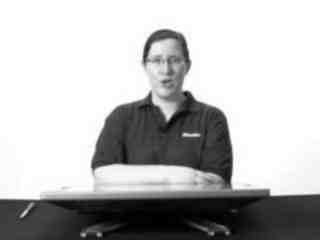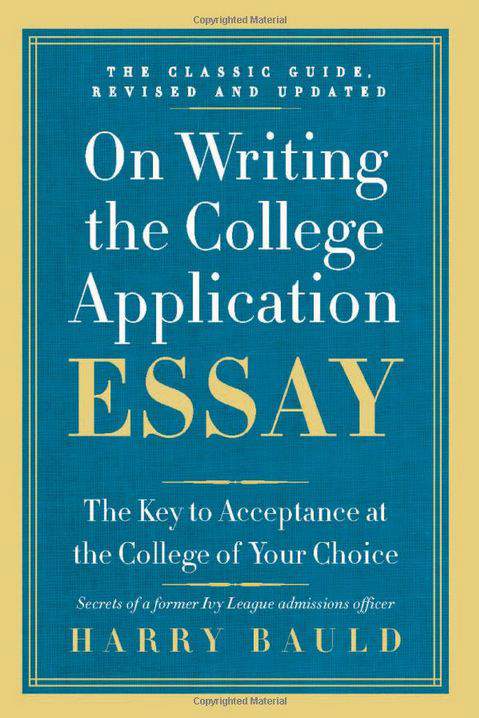

Rebekah Hendershot
Specific Fields
Slide Duration:Table of Contents
Section 1: Application Essays
Overview
11m 8s
- Intro0:00
- First Things First0:08
- Don't Panic!0:39
- Lesson Overview1:31
- What They Aren't Looking For2:10
- Perfection2:15
- Genius2:45
- Flattery3:16
- What They Are Looking For3:48
- Preparation3:52
- Talent4:47
- Fit5:26
- How This Course Will Work6:42
- Remember the Balance Beam8:37
- Balance Beam Story8:47
The Prompt
18m 20s
- Intro0:00
- Lesson Overview0:07
- Experience Prompts0:55
- Example 11:03
- Example 21:11
- Example 31:17
- Influence Prompts1:31
- Select a Creative Work1:46
- Analysis Prompts2:34
- Examples2:45
- Explanation Prompts3:11
- Examples3:23
- 'What If?' Prompts4:08
- Examples4:19
- What These Prompts Have in Common4:47
- You Can Write About Things Before You Enter the School4:51
- They All Use Skills Needed in School of Choice5:40
- How to Answer Experience Prompts5:57
- What to Pick6:19
- Example6:49
- How to Answer Influence Prompts8:13
- What to Pick8:37
- Example9:50
- How to Answer Analysis Prompts10:35
- What to Pick11:02
- Example11:18
- How to Answer Explanation Prompts12:46
- What to Pick13:00
- Example13:33
- How to Answer 'What If?' Prompts14:21
- What to Pick14:26
- Example14:54
- When in Doubt16:28
Choosing a Topic
13m 27s
- Intro0:00
- Lesson Overview0:07
- Read the Prompt0:39
- Kind of Prompt0:41
- Look for Main Idea1:29
- Describe a Character2:14
- Look for the Underlying Theme3:06
- Role Models4:07
- Look for Technical Specifications5:02
- Choose a Topic6:59
- Analyze What You're Given7:09
- How to Analyze a Quote7:43
- Do a Little Research9:53
- Write What You Know11:25
- When in Doubt12:15
Outlining
15m 39s
- Intro0:00
- Lesson Overview0:07
- What is an Outline?0:43
- A Sample Essay1:07
- Prompt1:19
- Choosing Your Outline Style1:55
- Formal Outline1:59
- Introduction2:10
- Using My Brain3:28
- Advantages4:39
- Disadvantages5:23
- Mnemonic Outline6:02
- A Mnemonic Outline6:45
- Essay6:56
- Introduction7:05
- Thesis7:16
- Body Paragraphs7:24
- Conclusion8:59
- Choosing Your Outline Style10:47
- Advantages10:49
- Disadvantages11:37
- Which Outline is Right for You?12:25
- Use a Formal Outline If…12:34
- Use a Mnemonic Outline If…13:17
- Testing Your Outline13:55
- Test on Yourself14:02
- Test on Someone Else14:29
- When in Doubt15:06
Writing Part One: The Beginning
18m 12s
- Intro0:00
- Lesson Overview0:09
- What is a Hook?1:11
- Famous First Sentences1:26
- Example 11:31
- Example 22:21
- Example 32:39
- Example 43:22
- How to Write a Good Hook3:56
- Start with an Arresting Image4:04
- Use an Idea That Piques Your Interest6:06
- Use Surprise8:37
- Have Fun!10:09
- Your Thesis Statement11:27
- How to Find Your Thesis Statement11:46
- Make a List of Strongest Ideas11:54
- Thesis Will be the Idea You Can Write About Most Ably12:12
- Where to Place Your Thesis Statement12:47
- In a Traditional Essay12:52
- First Sentence in Essay14:06
- At the End14:58
- When in Doubt17:05
Writing Part Two: The Middle & End
14m 7s
- Intro0:00
- Lesson Overview0:13
- The Three Parts of a Good Essay0:58
- The Middle: Details, Details, Details!1:15
- Middle1:40
- Structure Correctly2:02
- Pacing is Key!3:30
- How to Write a Winning Conclusion5:43
- Good Conclusion6:07
- Echoes6:33
- Callbacks6:45
- Best Conclusions Evolve From Theses7:09
- Essay Example8:18
- Essay Example Continued8:39
- Have Fun!10:28
- When in Doubt12:21
Revision
14m 35s
- Intro0:00
- Lesson Overview0:07
- Take a Break!1:02
- Revision vs. Proofreading1:27
- Revision1:36
- Proofreading1:54
- Deep Revision2:25
- What Is It?2:28
- Did You Answer the Prompt?2:58
- Did You Choose the Right Topic?3:45
- Did You Organize Your Answer Well?4:21
- Did You Leave Out Anything Important?5:07
- Did You Pad Your Response?6:50
- Get a Second Opinion7:36
- Beta Reader8:21
- Writing Circle9:40
- The 90/ 10 Rule of Second Opinions12:11
- What Is It?12:25
- When in Doubt13:49
After You've Written
12m 31s
- Intro0:00
- Lesson Overview0:08
- Proofreading0:51
- Definition1:07
- Mark Errors1:16
- Spelling, Grammar, & Mechanics2:20
- Check Your Spelling2:24
- Check Your Grammar2:51
- Check the Mechanics of Your Writing3:26
- Use Human Eyes4:01
- Proofreading Resources4:55
- Style Manuals5:01
- Stylebooks5:19
- Professionals6:20
- Amateurs6:38
- Sending in Your Essay6:56
- The Stupid Check7:08
- List of Stupid Things You May Have Done7:32
- Send It In9:43
- Rule10:13
- Relax!10:31
- After You Send It It10:57
- Waiting for a Response is Part of the Test11:26
- When in Doubt11:57
Competitive Schools
14m 29s
- Intro0:00
- Lesson Overview0:08
- Calm Down!2:13
- Similar Essay Questions2:33
- Similar Prompts3:00
- Experience Prompt3:08
- Influence Prompt3:33
- Analysis Prompt4:28
- Explanation Prompt5:09
- 'What if?' Prompt5:56
- But Don't Calm Down That Much!6:38
- High-Pressure Environments6:48
- Large Applicant Pools8:19
- How, and When, to Gush9:33
- Be Excited!9:57
- Don't Make Things Up10:33
- Be Yourself & Do Your Best11:20
- When in Doubt12:58
Specific Fields
14m 43s
- Intro0:00
- Lesson Overview0:10
- Some Things Don’t Change1:26
- Same General Qualities1:29
- Essay Questions1:41
- Question Types and Examples2:03
- Experience Prompt2:30
- Influence Prompt2:56
- Analysis Prompt3:49
- Explanation Prompt4:37
- 'What if?' Prompt5:17
- Do Your Research6:21
- Read the School's Website6:47
- Talk to People7:27
- Craft a Major-Specific Resume8:38
- Emphasize Relevent Parts of Your Background9:03
- Get the Intangibles9:20
- Be Creative9:55
- When in Doubt, Tell a Good Story12:07
- Make a Prioritized List12:26
- Why Good Stories Help13:19
- When in Doubt13:59
Loading...
This is a quick preview of the lesson. For full access, please Log In or Sign up.
For more information, please see full course syllabus of Application Essays
For more information, please see full course syllabus of Application Essays
Application Essays Specific Fields
Lecture Description
In this lesson, our instructor Rebekah Hendershot gives an introduction to specific fields. She starts by explaining that not everything will change; they have similar prompt styles. She then discusses how important it is to do your research, how to craft a major-specific resume, and how telling a good story helps.
Bookmark & Share
Embed
Share this knowledge with your friends!
Copy & Paste this embed code into your website’s HTML
Please ensure that your website editor is in text mode when you paste the code.(In Wordpress, the mode button is on the top right corner.)
×
Since this lesson is not free, only the preview will appear on your website.
- - Allow users to view the embedded video in full-size.
Next Lecture
Previous Lecture














































0 answers
Post by Antonio Nucera on December 14, 2015
Thanks teacher i ended up your class and it was very useful
2 answers
Last reply by: jessica colindres
Fri Apr 12, 2013 8:24 PM
Post by jessica colindres on April 11, 2013
One of the lectures said not to say but show your talents or qualities, does that still apply if the prompt specifically asks what talents/skills you can bring to a field? I ask because the lectures also stress making sure you answer the prompt and I don’t want to sound like I am not answering the question.
Would it be appropriate to use, having passion for a specific subject as a talent/skill?
Thank you in advance for your feedback.
0 answers
Post by Vashti Ramphal on November 8, 2012
Can I submit my essay for feedback?